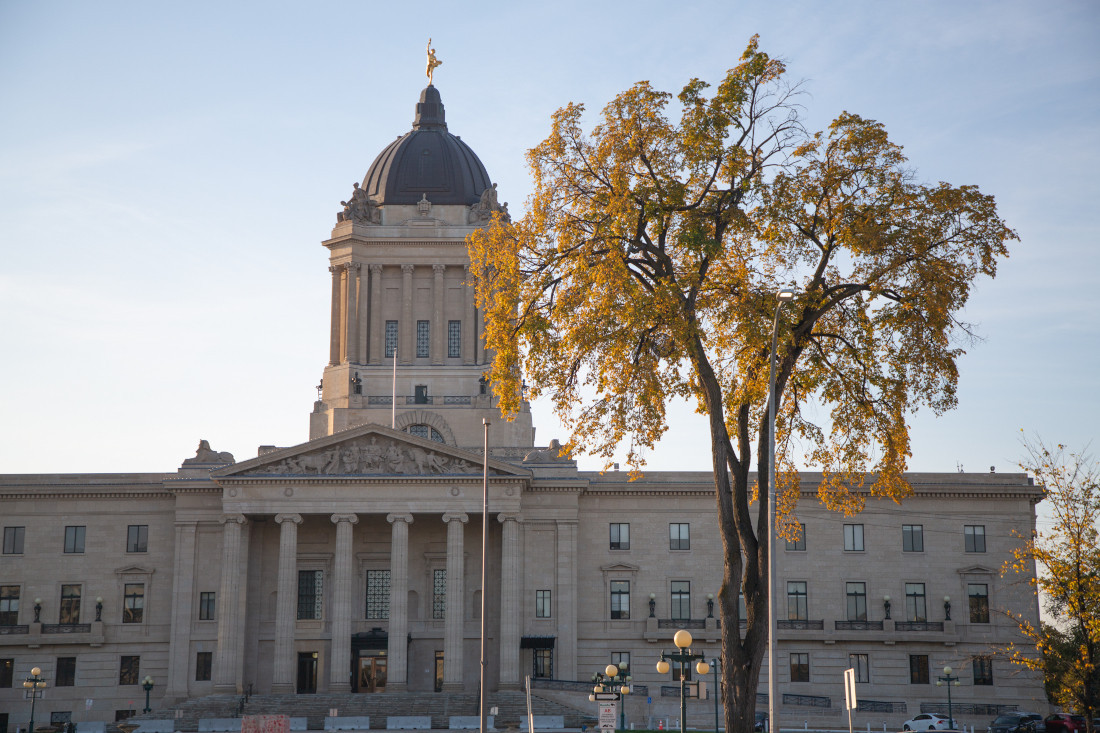Setting a bad precedent
Desperate times call for better policy
More than two years into the COVID-19 pandemic, two things are still true: we live in unprecedented times, and we are tired of hearing “we live in unprecedented times.” Another truism – despite attempts by government officials to suggest otherwise – is that the pandemic is far from over and still claiming many lives.
For many Manitobans like myself who were born around the turn of the century, the COVID-19 pandemic has been the defining global event of our lives (we were too young to be fully cognisant of 9/11 or the global financial crisis). While my generation is impacted by the pandemic’s massive health and economic consequences, the way many political leaders have responded to this crisis will stick with us forever.
Of course, massive societal problems like inequality, climate change and systemic racism existed prior to 2020 and were poorly addressed by governments. However, the pandemic has shown that even governments’ most basic function – protecting their citizens – can so easily be neglected. Furthermore, government pandemic failure has exacerbated many of our pre-existing problems.
Whatever was left of the ever-declining social contract has completely been destroyed by Canadian governments during the COVID-19 pandemic. The message has been resoundingly clear: we are on our own. This has been especially true in Manitoba.
We have realized that we can no longer rely on the government to provide us with a basic basket of goods and services, including timely surgery, COVID-19 tests, masks and accurate and frequent data to help us make informed decisions.
In March, the Progressive Conservative government ended virtually all public-health restrictions, pivoting to focus on “kindness and compassion.” Most egregiously, individuals who test positive for COVID-19 no longer need to self-isolate.
Libertarians might ask: “Well, why should the government be in charge of public health anyways? Can’t we let individuals make decisions that are best for them?”
Public health, broadly defined, is a classic example of what economists call a public good. Unlike a private good like a smartphone or a burger, public goods are non-rivalrous (one person’s consumption does not prevent another’s) and non-excludable (it is difficult to exclude people from consuming it).
Given these properties, leaving public health to be determined by markets – which is essentially what a “laissez-faire” approach does – will lead to an underprovision of this good. Therefore, there is an unquestionably clear role for governments, even at times when the pandemic is waning.
Unfortunately, the 21st century electorate in Canada (and, by extension, policymakers), strongly influenced by the propagation of flawed economic thinking, are conditioned to view the absence of government action as the default. However, a government’s choice not to intervene is an active and deliberate policy decision and should be viewed as such.
This bias toward government inaction has permeated the political discourse during the pandemic and has affected policy decisions. For example, politicians and public-health officials have focused much more on how restrictions impacts peoples’ freedom than how a lack of restrictions impact peoples’ lives.
This pervasive libertarian mindset combined with self-justifying clichés (“once-ina-lifetime pandemic” or “there is no playbook”) has led governments to position themselves as beyond reproach. “Coulda, woulda, shoulda” (or some permutation of the phrase) has been a favourite of the Manitoba PCs, expressed by Premier Heather Stefanson, her predecessor Brian Pallister and newly elected MLA Obby Khan.
While governing during a pandemic is obviously no walk in the park, it is inaccurate to say that politicians have done their best given the circumstances. In Manitoba, for example, doctors wrote many public letters at different stages of the pandemic, calling on the provincial government to do more.
There is a general consensus among public-health experts on how to deal with the COVID-19 crisis, just like there is a scientific consensus regarding the existence of human-caused climate change.
The “age of uncertainty” has really been uncertainty for us, the citizens, rather than for those in power who make decisions. In jurisdictions such as Manitoba, it is the government that controls and has access to socalled public data. Yet, we, the citizens, are somehow supposed to make informed decisions about the ongoing pandemic.
Two years into the pandemic, we’re all feeling what experts call “decision fatigue.” According to the American Medical Association, this is a “state of mental overload that can impede a person’s ability to continue making decisions” and has become more prevalent during the last two years due to the “added new layers of complexity” to all our daily choices.
With many governments now abnegating even their most public health responsibilities, I fear that our decision fatigue will only increase.
Did any governments do better than ours? Of course, but such comparisons are not necessary to see how Manitoba’s policy response could have been better. While all policy decisions require making tradeoffs between costs and benefits, this provincial government has implemented policies with virtually no benefits, as well as failed to implement policies with virtually no costs.
The list is long. Are there any real costs to releasing epidemiological data, to holding frequent public-health briefings, to requiring individuals to wear masks or to not mandate vaccination for personal care-home workers?
Manitobans of my generation, many of whom were politically galvanized during the pandemic, have witnessed firsthand the damaging effects of mediocre or bad public policy. While I sincerely hope that this has not turned us all into anti-government cynics, this remains to be seen.
Going forward, we must never let “unprecedented” or “uncertain” times be an excuse for government failure. There are too many overlapping crises in our world – ranging from economic, to environmental, to geopolitical – for politicians and bureaucrats to be given a free pass, using the difficult situation they are in as an excuse.
Public policy, because it directly affects citizens’ lives, is simply too important.
Published in Volume 76, Number 24 of The Uniter (April 7, 2022)








